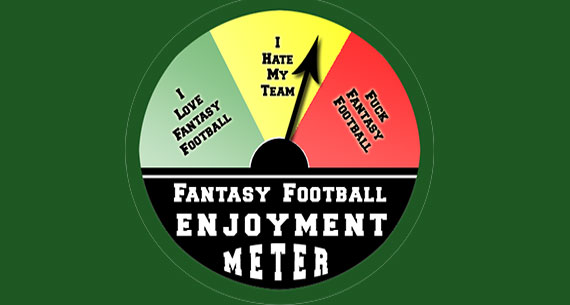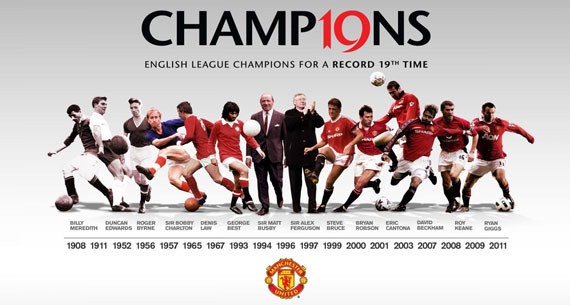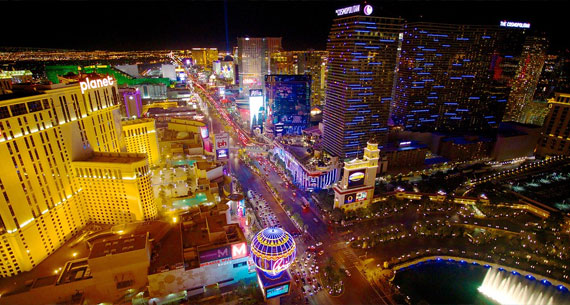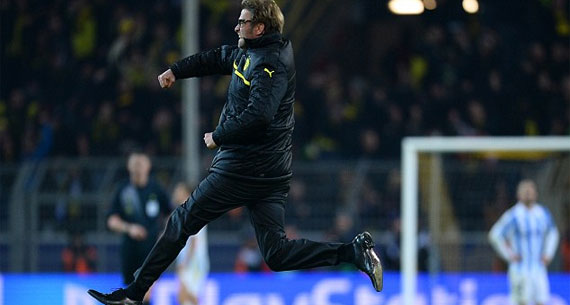The week in pictures: September 29 – October 05, 2015

Last week was a busy seven days so lets take a moment to look back at some of the stories that hit our headlines and those of publications around the world
At NASA scientists announced the discovery of water on the surface of Mars. The highly salted liquid forms dark stains on the terrain and only flows during the summer months before drying out in autumn. The precise origin of the liquid is as yet unknown but scientists hope that its discovery could lead to more precise searches both for life on Mars and potential sites for human habitation in the future. “Mars is not the dry, arid planet that we thought of in the past.” said NASA.
In the Middle East Russian combat aircraft conducted military operations over Syria as keen ally of President Bashar Assad, Vladimir Putin, launched attacks on various rebel groups currently fighting the nation’s ongoing civil war. This included some anti-Assad groups supported and financed by the US who denounced the presence of Russian forces in the area and described the bombings as “indiscriminate”. US air operations over Syria continued uninterrupted despite the Russian sorties.
In Roseburg, Oregon, a student opened fire at Umpqua community college killing nine classmates and wounding nine others. The gunman, 26 year old British born Chris Harper-Mercer, who was enrolled at the college on a writing course, apparently targeted Christians in his attack. Police say they recovered a dozen legally purchased weapons from both his person and home and that Mercer killed himself as police moved in after a short gun battle. His motives were not immediately clear.
In sport hosts England crashed out of the Rugby World Cup having been completely outclassed by Australia in their 13-33 defeat. The result puts Wales and Australia through from Pool A, the first time a host nation has failed to win a place in the quarter-finals. The question now is who will lift the trophy in the final? You’ll have to read our daily news pages to find out but in the meantime here’s a look at some of the big stories we covered over the last seven days.
1. NCAA considers daily fantasy sports as gambling, so participating college athletes due to be handed a year suspension.
2. After the first seven rounds of the Premier League and the first two of the Champions League, the Red Devils were the best English side.
3. Celtic majority shareholder Dermot Desmond thinks that the Scottish giants will join the English top-flight in the next decade.
4. Gambling revenue incomes fell for the third month in a row in Nevada, though gambling still flourishes in certain districts of Las Vegas.
5. Former Borussia Dormund coach Jurgen Klopp became the favorite to take over Liverpool after Brendan Rodgers was fired.
Meanwhile Stephen Hawking once again warned against possible alien invasion comparing any encounter Humans might have with extraterrestrials as being akin to the result of Columbus discovering America on the Native Americans. “Advanced aliens,” he said, “would perhaps become nomads, looking to conquer and colonize whatever planets they can reach.” His comments were made to “raise public awareness about the importance of space flight”.


Last week was a busy seven days so lets take a moment to look back at some of the stories that hit our headlines and those of publications around the world
At NASA scientists announced the discovery of water on the surface of Mars. The highly salted liquid forms dark stains on the terrain and only flows during the summer months before drying out in autumn. The precise origin of the liquid is as yet unknown but scientists hope that its discovery could lead to more precise searches both for life on Mars and potential sites for human habitation in the future. “Mars is not the dry, arid planet that we thought of in the past.” said NASA.
In the Middle East Russian combat aircraft conducted military operations over Syria as keen ally of President Bashar Assad, Vladimir Putin, launched attacks on various rebel groups currently fighting the nation’s ongoing civil war. This included some anti-Assad groups supported and financed by the US who denounced the presence of Russian forces in the area and described the bombings as “indiscriminate”. US air operations over Syria continued uninterrupted despite the Russian sorties.
In Roseburg, Oregon, a student opened fire at Umpqua community college killing nine classmates and wounding nine others. The gunman, 26 year old British born Chris Harper-Mercer, who was enrolled at the college on a writing course, apparently targeted Christians in his attack. Police say they recovered a dozen legally purchased weapons from both his person and home and that Mercer killed himself as police moved in after a short gun battle. His motives were not immediately clear.
In sport hosts England crashed out of the Rugby World Cup having been completely outclassed by Australia in their 13-33 defeat. The result puts Wales and Australia through from Pool A, the first time a host nation has failed to win a place in the quarter-finals. The question now is who will lift the trophy in the final? You’ll have to read our daily news pages to find out but in the meantime here’s a look at some of the big stories we covered over the last seven days.
1. NCAA considers daily fantasy sports as gambling, so participating college athletes due to be handed a year suspension.
2. After the first seven rounds of the Premier League and the first two of the Champions League, the Red Devils were the best English side.
3. Celtic majority shareholder Dermot Desmond thinks that the Scottish giants will join the English top-flight in the next decade.
4. Gambling revenue incomes fell for the third month in a row in Nevada, though gambling still flourishes in certain districts of Las Vegas.
5. Former Borussia Dormund coach Jurgen Klopp became the favorite to take over Liverpool after Brendan Rodgers was fired.
Meanwhile Stephen Hawking once again warned against possible alien invasion comparing any encounter Humans might have with extraterrestrials as being akin to the result of Columbus discovering America on the Native Americans. “Advanced aliens,” he said, “would perhaps become nomads, looking to conquer and colonize whatever planets they can reach.” His comments were made to “raise public awareness about the importance of space flight”.

The week in pictures: November 11th – November 17th, 2014

The world last week was a place of excitement and disaster so lets look back at some of the big stories that hit the headlines
Quatar was cleared of allegations of wrong doing surrounding their being awarded the 2022 World Cup by FIFA the body that oversees international soccer. Despite a huge number of allegations the report supposedly gave the rich nation in which it’s actually too hot to feasibly play football a clean bill of health although the report itself is not to be published in full and has already been criticized by one of the authors for being misrepresented. UEFA are already threatening to quit FIFA over the scandal.And a scandal is perhaps what the Rosetta project could become as the 1.4 billion Euro adventure into the depths of space managed to get 300 million miles from Earth, catch up with a speeding comet and then crash into it, bounce a few times and dive into one of the few places its solar panels couldn’t recharge its batteries. Still hailed as a huge success by the scientific community it remains to be seen just how much real information will be gleaned from the results.
Of course real information is hard to come by these days and Vladimir Putin seemed a tad disingenuous when he cited a long journey home and a need for sleep as being the reasons behind his leaving the G20 Summit in Australia quite as early as he did. Of course many observers would point to the fact just about every other leader had lambasted him for his attitude and behavior over Ukraine, and that Russia was rapidly becoming isolated on the world stage.
In sports a very disappointed Roger Federer was forced to pull out of the ATP World Tour final versus long term rival Novak Djokovic due to a back injury. Apologizing in person at the O2 Arena in London he said sorry for not being match fit in what was a massive PR disaster for the ATP, and an unfortunately tainted default win for Djokovic who admitted this wasn’t the way he wanted to win the trophy. Will Federer recover his fitness or have we seen the last of the six time ATP champion? Find out on our daily news pages but in the meantime lets have a look back at our headlines from last week.
1. One company’s trash is another company’s treasure. With Echo Group hunting VIP gamblers, the Townsville casino was becoming too insignificant in the whole picture, so the company sold it for $70 million to someone willing to fix it up and revive it.
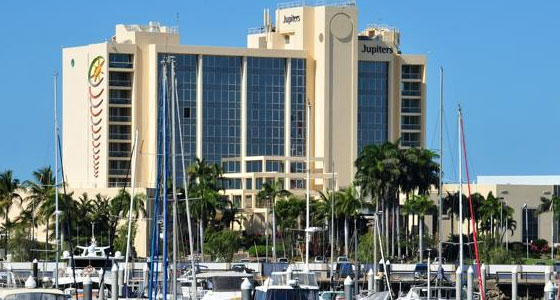
2. After remote gambling operators have taken a major financial blow because of the new license fees and taxes imposed in the UK, the Maltese Government is offering to help heal their bleeding wounds.
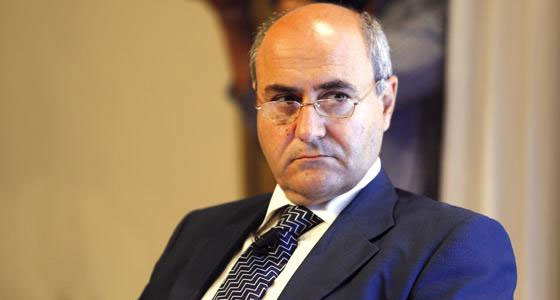
3. A trained chef and poker player, Martin Jacobson has surely figured out the secret recipe for success, because he just won $10 million and his very first gold bracelet at the World Series of Poker.
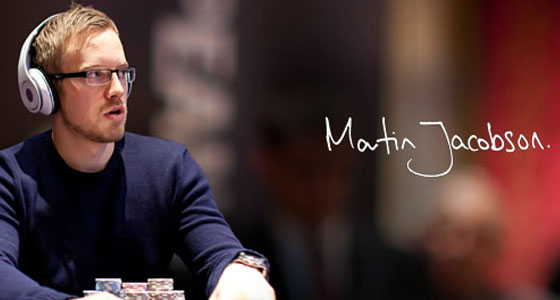
4. It took a long time, but Atlantic City is finally waking up and smelling the coffee. Losing five casinos and leaving thousands of workers unemployed has finally hurt enough to convince officials that it’s time for a change.
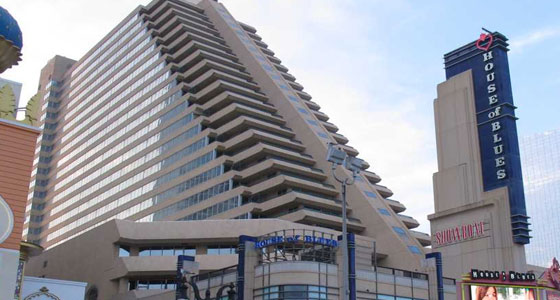
5. One of the largest Asian gambling groups, Genting, is resilient to the general decline on the gambling market.
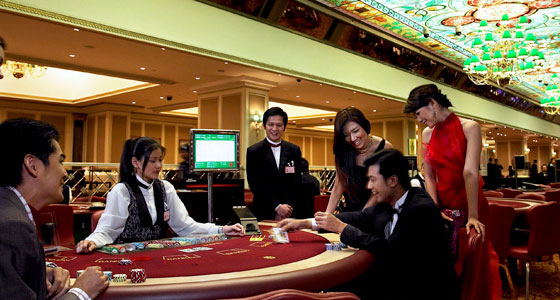
6. The state of Illinois allowed video gaming machines in bars and restaurants and so far the experience has been positive.
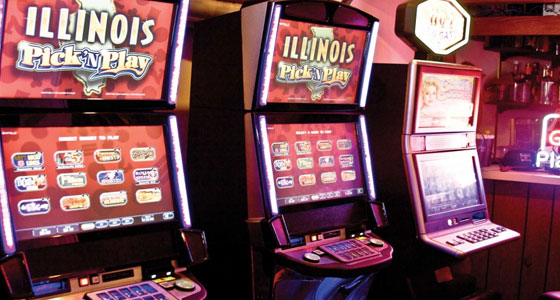
7. New information has been made available in connection to Paul Phua illegal betting ring, which might lead to case dismissal.
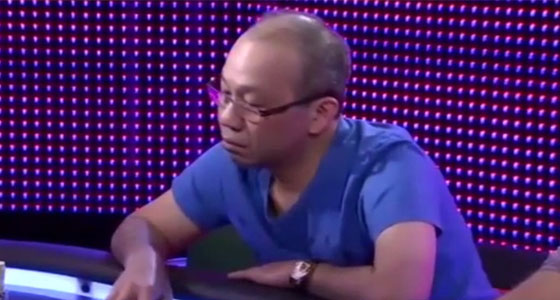
Meanwhile Boko Haran we accused of being behind the suicide bombing that struck a Nigerian school assembly killing 46 and injuring 79 students, an event that made a mockery of government claims to have signed a ceasefire with the Islamic terrorist group, and elsewhere the Dutch have discovered a new outbreak of an even more contagious, and thus dangerous, strain of bird flu that can be transmitted to humans. Will we all end up tarred and feathered? You’ll have to keep up to date with our daily news pages to find out.



The world last week was a place of excitement and disaster so lets look back at some of the big stories that hit the headlines
Quatar was cleared of allegations of wrong doing surrounding their being awarded the 2022 World Cup by FIFA the body that oversees international soccer. Despite a huge number of allegations the report supposedly gave the rich nation in which it’s actually too hot to feasibly play football a clean bill of health although the report itself is not to be published in full and has already been criticized by one of the authors for being misrepresented. UEFA are already threatening to quit FIFA over the scandal.And a scandal is perhaps what the Rosetta project could become as the 1.4 billion Euro adventure into the depths of space managed to get 300 million miles from Earth, catch up with a speeding comet and then crash into it, bounce a few times and dive into one of the few places its solar panels couldn’t recharge its batteries. Still hailed as a huge success by the scientific community it remains to be seen just how much real information will be gleaned from the results.
Of course real information is hard to come by these days and Vladimir Putin seemed a tad disingenuous when he cited a long journey home and a need for sleep as being the reasons behind his leaving the G20 Summit in Australia quite as early as he did. Of course many observers would point to the fact just about every other leader had lambasted him for his attitude and behavior over Ukraine, and that Russia was rapidly becoming isolated on the world stage.
In sports a very disappointed Roger Federer was forced to pull out of the ATP World Tour final versus long term rival Novak Djokovic due to a back injury. Apologizing in person at the O2 Arena in London he said sorry for not being match fit in what was a massive PR disaster for the ATP, and an unfortunately tainted default win for Djokovic who admitted this wasn’t the way he wanted to win the trophy. Will Federer recover his fitness or have we seen the last of the six time ATP champion? Find out on our daily news pages but in the meantime lets have a look back at our headlines from last week.
1. One company’s trash is another company’s treasure. With Echo Group hunting VIP gamblers, the Townsville casino was becoming too insignificant in the whole picture, so the company sold it for $70 million to someone willing to fix it up and revive it.

2. After remote gambling operators have taken a major financial blow because of the new license fees and taxes imposed in the UK, the Maltese Government is offering to help heal their bleeding wounds.

3. A trained chef and poker player, Martin Jacobson has surely figured out the secret recipe for success, because he just won $10 million and his very first gold bracelet at the World Series of Poker.

4. It took a long time, but Atlantic City is finally waking up and smelling the coffee. Losing five casinos and leaving thousands of workers unemployed has finally hurt enough to convince officials that it’s time for a change.

5. One of the largest Asian gambling groups, Genting, is resilient to the general decline on the gambling market.

6. The state of Illinois allowed video gaming machines in bars and restaurants and so far the experience has been positive.

7. New information has been made available in connection to Paul Phua illegal betting ring, which might lead to case dismissal.

Meanwhile Boko Haran we accused of being behind the suicide bombing that struck a Nigerian school assembly killing 46 and injuring 79 students, an event that made a mockery of government claims to have signed a ceasefire with the Islamic terrorist group, and elsewhere the Dutch have discovered a new outbreak of an even more contagious, and thus dangerous, strain of bird flu that can be transmitted to humans. Will we all end up tarred and feathered? You’ll have to keep up to date with our daily news pages to find out.


Russia’s First New Casino Opens, Death Sparks Concern
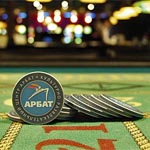
A recent change to Russian gambling laws saw the closure of all casinos and gambling halls in the country, with the aim to relocate all legal gambling to four specified “gambling zones”. On Saturday, almost 7 months after the law took effect, the first new casino opened in the Azov City area. Tragically, the death of a prominent Lawmaker as he returned from the opening ceremony sparked concerns over the decision to locate the casino zones far from major metropolitan areas.
Fox News: Russia Casino Opens Under New Gambling Plan
Six months ago, Russian officials shut down all casinos and gambling halls across the country as part of a scheme to limit legalized gambling to four specific areas and relatively remote areas. On Saturday, the first new casino operating under the new plan opened its doors to the public.
About 500 people showed up for the opening of the Oracle Casino in Azov City in southern Russia. Only around 100 visitors seemed to be actually gambling – the rest where just there to check things out. The casino is housed in a large shed-like building situated in the middle of a snowy field, and houses about 200 slot machines and 10 table games.
Azov City is one of four new gambling zones in Russia. It is located about 60 miles from Rostov-on-Don, the nearest sizable city, and 120 miles from Krasnodar.
It is not yet clear how many Russian gamblers will be willing to travel such long distances to gamble, but the casino’s operators are convinced that there is a market. In fact, they plan to start building a four-star hotel this summer.
Casinos quickly spread across Russia’s cities after the 1991 collapse of the Soviet Union, while slot machines found their way into shops, malls, and other public places. The law that brought about the new scheme was signed in 2006, but many people expected that it would never be enforced. The law limits all gambling to Azov City, the Kaliningrad exclave on the Baltic Sea, the Altai region of Siberia and the Primorsky region of Russia’s Far East.
RIA Novosti: First casino to open in Russian gambling zone
The first casino in one of Russia’s new gambling zone opened Saturday, more than six months after all existing casinos were forced to close or to relocate their services to one of four designated areas.
Under a law drafted in 2007, which didn’t come into force until July 2009, all casinos and other gaming establishments in Russia can operate only in four somewhat remote areas: the Baltic exclave of Kaliningrad, south Siberia’s Altai Territory, Primorye in the Far East, and in southern Russia.
The new casino is operated by a company called Royal Time, which based in Russia’s Volga Republic of Tatarstan. It offers a slot machine arcade, a full casino and a seperate VIP hall. A restaurant and a free bar is also available.
Royal Time also intends open a small 11-room hotel by mid-2010. A much larger four-star hotel is expected to be completed in 2017. Royal Time will also operate free busses between the casino and two southern Russian cities: Krasnodar and Rostov-on-Don.
The Azov City gambling zone, located on the Azov sea coast some 70 km (44 miles) from Rostov-on-Don, is now far ahead its three “rival” zones. Construction of its second casino is due to begin in March.
The Moscow Times: Lawmaker Killed in Car Crash after Opening of First Casino
A senior Russian lawmaker died this weekend in a car crash as he was traveling home from the grand opening of the first casino to open under Russia’s new “zone” system. The accident promises to strengthen concerns about government’s decision to limit all legal gambling to four remote areas of the country.
Nikolai Kotlyarov was speaker of the Krasnodar city legislature. He and his driver were killed when their Toyota Camry hit a car parked on the side of the Krasnodar-Eisk Highway at around 1 a.m. on.
Kotlyarov was one of about 500 people who showed up for the opening of the new Oracle Casino in Azov City, a gambling zone located about 200 kilometers from Krasnodar and 100 kilometers from Rostov-on-Don, the nearest sizable city.
Casinos and other gambling halls across the country were closed down on July 1 of last year, under a government plan to limit gambling to four specific regions: Azov City, the Kaliningrad exclave, the Altai region in Siberia and the Primorye region in the Far East.
Sunday’s car crash highlights the risks associated with the decision to locate all casinos in remote areas, and draws new attention to the country’s dangerous roads. President Dmitry Medvedev described Russia’s high road-accident rate as a problem, and has resolved to work on making roads safer.
Investigators have already announced that they believe the accident was caused by a violation of traffic safety rules, and an investigation has been opened into the matter.

A recent change to Russian gambling laws saw the closure of all casinos and gambling halls in the country, with the aim to relocate all legal gambling to four specified “gambling zones”. On Saturday, almost 7 months after the law took effect, the first new casino opened in the Azov City area. Tragically, the death of a prominent Lawmaker as he returned from the opening ceremony sparked concerns over the decision to locate the casino zones far from major metropolitan areas.
Fox News: Russia Casino Opens Under New Gambling Plan
Six months ago, Russian officials shut down all casinos and gambling halls across the country as part of a scheme to limit legalized gambling to four specific areas and relatively remote areas. On Saturday, the first new casino operating under the new plan opened its doors to the public.
About 500 people showed up for the opening of the Oracle Casino in Azov City in southern Russia. Only around 100 visitors seemed to be actually gambling – the rest where just there to check things out. The casino is housed in a large shed-like building situated in the middle of a snowy field, and houses about 200 slot machines and 10 table games.
Azov City is one of four new gambling zones in Russia. It is located about 60 miles from Rostov-on-Don, the nearest sizable city, and 120 miles from Krasnodar.
It is not yet clear how many Russian gamblers will be willing to travel such long distances to gamble, but the casino’s operators are convinced that there is a market. In fact, they plan to start building a four-star hotel this summer.
Casinos quickly spread across Russia’s cities after the 1991 collapse of the Soviet Union, while slot machines found their way into shops, malls, and other public places. The law that brought about the new scheme was signed in 2006, but many people expected that it would never be enforced. The law limits all gambling to Azov City, the Kaliningrad exclave on the Baltic Sea, the Altai region of Siberia and the Primorsky region of Russia’s Far East.
RIA Novosti: First casino to open in Russian gambling zone
The first casino in one of Russia’s new gambling zone opened Saturday, more than six months after all existing casinos were forced to close or to relocate their services to one of four designated areas.
Under a law drafted in 2007, which didn’t come into force until July 2009, all casinos and other gaming establishments in Russia can operate only in four somewhat remote areas: the Baltic exclave of Kaliningrad, south Siberia’s Altai Territory, Primorye in the Far East, and in southern Russia.
The new casino is operated by a company called Royal Time, which based in Russia’s Volga Republic of Tatarstan. It offers a slot machine arcade, a full casino and a seperate VIP hall. A restaurant and a free bar is also available.
Royal Time also intends open a small 11-room hotel by mid-2010. A much larger four-star hotel is expected to be completed in 2017. Royal Time will also operate free busses between the casino and two southern Russian cities: Krasnodar and Rostov-on-Don.
The Azov City gambling zone, located on the Azov sea coast some 70 km (44 miles) from Rostov-on-Don, is now far ahead its three “rival” zones. Construction of its second casino is due to begin in March.
The Moscow Times: Lawmaker Killed in Car Crash after Opening of First Casino
A senior Russian lawmaker died this weekend in a car crash as he was traveling home from the grand opening of the first casino to open under Russia’s new “zone” system. The accident promises to strengthen concerns about government’s decision to limit all legal gambling to four remote areas of the country.
Nikolai Kotlyarov was speaker of the Krasnodar city legislature. He and his driver were killed when their Toyota Camry hit a car parked on the side of the Krasnodar-Eisk Highway at around 1 a.m. on.
Kotlyarov was one of about 500 people who showed up for the opening of the new Oracle Casino in Azov City, a gambling zone located about 200 kilometers from Krasnodar and 100 kilometers from Rostov-on-Don, the nearest sizable city.
Casinos and other gambling halls across the country were closed down on July 1 of last year, under a government plan to limit gambling to four specific regions: Azov City, the Kaliningrad exclave, the Altai region in Siberia and the Primorye region in the Far East.
Sunday’s car crash highlights the risks associated with the decision to locate all casinos in remote areas, and draws new attention to the country’s dangerous roads. President Dmitry Medvedev described Russia’s high road-accident rate as a problem, and has resolved to work on making roads safer.
Investigators have already announced that they believe the accident was caused by a violation of traffic safety rules, and an investigation has been opened into the matter.

